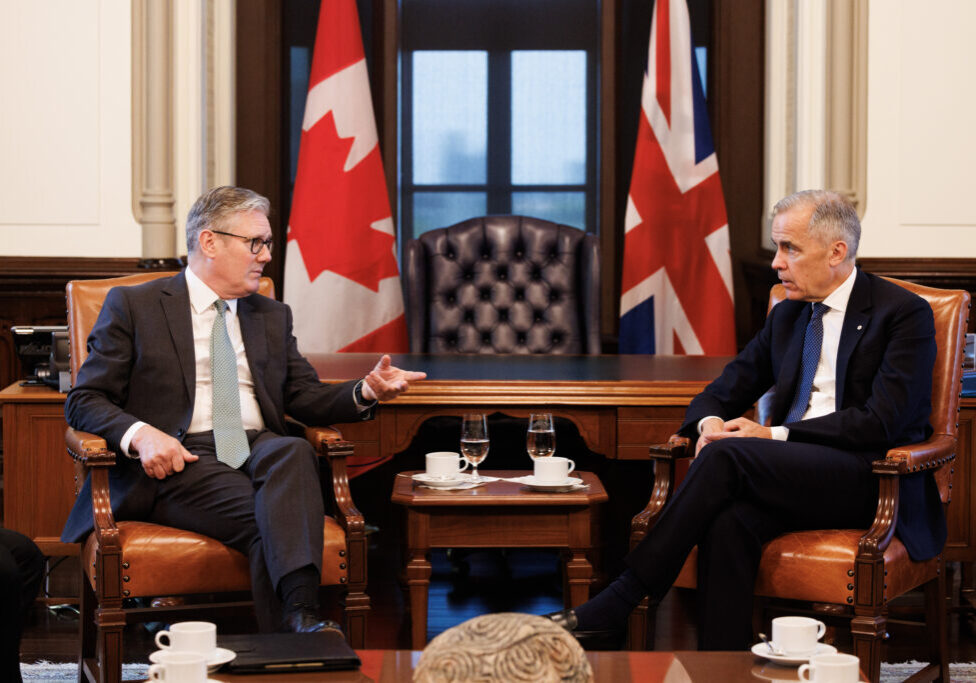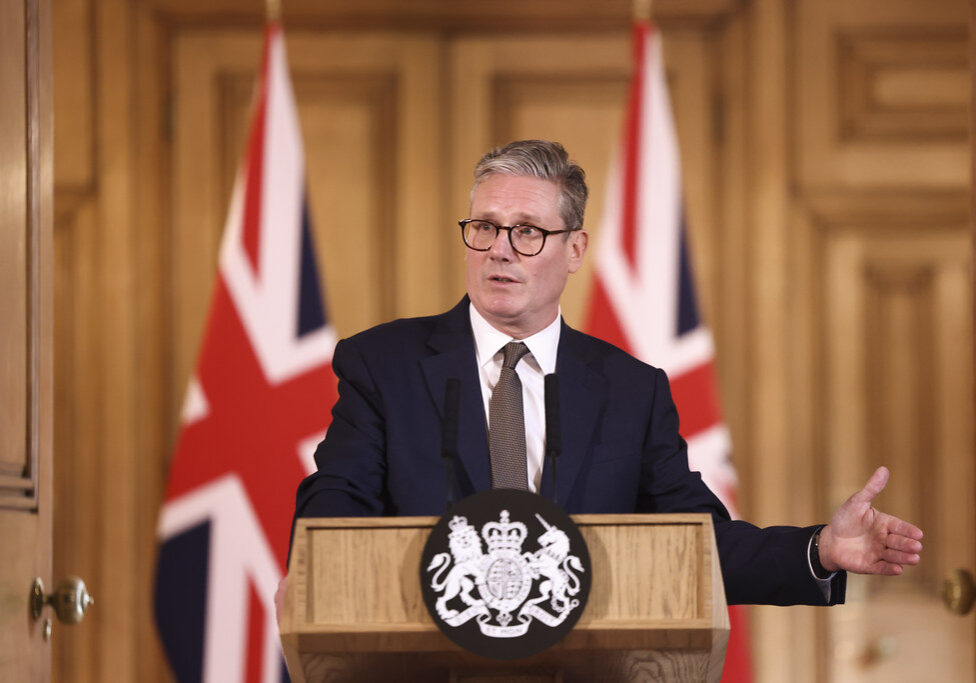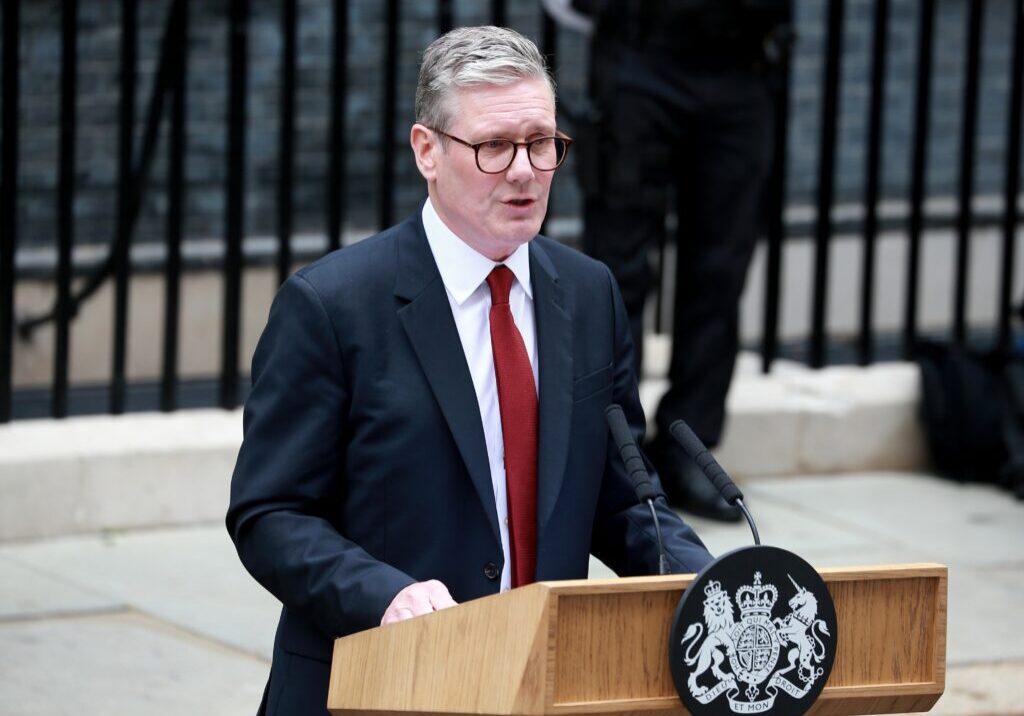Australia/Israel Review
“The Other Miliband”
Nov 1, 2010 | Douglas Davis
By Douglas Davis
Britain’s Labour Party has suffered two cruel blows over the past six months. First, it lost power after 13 years in office. And then, following a protracted campaign to replace the defeated Prime Minister Gordon Brown, it found itself with Ed Miliband as its leader.
Compounding the cruelty is that Ed Miliband, 40, was not the choice of either Labour Party members or the parliamentary Labour Party. Their votes went decisively to his older brother, David, 45, the former British foreign secretary.
Ed, however, was strongly supported by the third element that constitutes the party’s electoral college: the trade unions. They, apparently, regarded him as the more biddable brother, and their votes carried him to victory over David by just 1.3% of the total vote.
The election of Ed Miliband as leader has been described by one Labour legislator as “catastrophic”. Another predicted that it would cost the party the next election, still more than four years away.
Miliband the Younger does indeed face a daunting task. In order to assert his leadership, he must overcome two major handicaps, neither of which is amenable to a quick fix. He must demonstrate credibility in a political arena where he has held no major cabinet office, and he must acquire legitimacy within his party and among his colleagues, who overwhelmingly supported his brother. David, by contrast, had nothing to prove. He had already established himself as a genuine heavyweight in Labour politics.
Both brothers followed remarkably similar paths. Both took the same degree – politics, philosophy and economics – at the same Oxford University college (All Soul’s). Both went directly from university into backroom Labour Party politics (David working for Tony Blair; Ed for Gordon Brown) and both entered parliament within a few years of each other, finally serving together in Gordon Brown’s cabinet. Both now live in the fashionable London suburb of Primrose Hill – David with his American-born musician wife; Ed with his barrister-partner Justine Thornton and their year-old son (a second is due this month).
The differences between them are calibrated in leadership style rather than ideological substance. David is haughty, Ed is exuberant; David is a careful calculator, Ed is a natural enthusiast; David expresses himself in austere, clipped tones; Ed tends to gobble his words. David has neat, pixie features; Ed is clumsy and bulbous. And while Ed is no less intelligent than David, he lacks his older brother’s grace, gravitas and natural authority.
Before, during and after the campaign, both brothers declared their mutual admiration and love, pledging that nothing would harm their relationship or override the primacy of family ties. In the aftermath of the contest, however, it is hard to imagine that the hurt will ever really be healed or the trauma forgotten.
In fact, the outcome of the leadership contest represented more than sibling rivalry. It bore all the hallmarks of a biblical tragedy in which the younger brother usurps the birthright and the older is left to wander off the pages of destiny into the wilderness.
So it was with the Miliband brothers. A couple of days after the leadership result, David announced that he was leaving front-line politics to spend more time with his constituency and his family. It was a desperate moment for a man who had come so close to the top and who was widely regarded, not least by himself, as his party’s next natural leader.
In a post-ideological age, who is Ed Miliband? More specifically, what are the set of beliefs of those who belong to what Ed Miliband describes as the “New Generation”? According to one political commentator, the prejudices they share are that bankers, lawyers and big cars are bad, the Iraq War was bad, Israel is bad.
Ironically, the first defining characteristic that pundits point to when describing Miliband is that he is Jewish. Indeed, he is the first Jew to lead the Labour Party. “Jewish” would certainly not be the primary moniker that Miliband would apply to himself. He declares himself to be an atheist and has had virtually no contact with either the Jewish community or Israel.
The family’s closest connection to Jewish life probably comes through the activities of David and Ed’s mother, Marion Kozak, a founder of Jews for Justice for the Palestinians, which was created in 2002 at the height of the second intifada. The organisation’s founding statement asserts that “Israeli policies… undermine the livelihoods, human, civil and political rights of the Palestinian people” and pledges to ensure “that Jewish opinions critical of Israeli policy are heard in Britain”. More recently, she publicly supported a Jewish-manned ship that attempted to break the blockade of Hamas in Gaza.
Ed is thought to enthusiastically share his mother’s antipathy for Israel. At the annual Labour Party conference where he was elected last month, he urged delegates to “strain every sinew” to force Israel to end the blockade of Gaza. That outburst prompted an Israeli Foreign Ministry official to observe that Miliband, “did not express the type of support of Israel in his speech that some previous British leaders have.”
According to the London Jewish Chronicle, Miliband’s election has also caused “serious consternation” among leading members of the Jewish community and supporters of Israel who fear they are facing a “new reality”. Their concern was heightened by Miliband’s refusal to answer questions about Israel, his approach to foreign policy or his plans to meet Jewish community leaders.
The Miliband boys were nurtured on a heady brew of uncompromising Marxism. Their father Ralph, a refugee from Belgium, and mother Marion, a refugee from Poland, held open-house for London’s left-wing intelligentsia. And the young Milibands boys were always encouraged to participate in the fierce debates that raged around the dining table. Such was the ambience in the house of the rising sons.
While Marion laboured in the vineyards of Palestinian activism, Ralph was an academic and one time professor of history at the London School of Economics before resigning in disgust over the university’s tough treatment of student radicals in the late sixties. He became an itinerant lecturer, mostly in the United States, and was regarded as one of the leading Marxist theoreticians of his generation. He is said to have had a profound effect on Ed.
He was also a fierce critic of the British Labour Party – ironically because he believed that true socialism could never be achieved through the parliamentary system. When Ralph died in 1994, he was buried in Highgate Cemetery – no doubt as he wished – a few metres from the grave of Karl Marx.
Edward Samuel Miliband is not the doctrinaire Marxist his father might have hoped for. Nor is he the brilliant and charismatic young leader that his party undoubtedly wanted to lead them. But at least he will no longer have to refer to himself as “the other Miliband”.
Tags: United Kingdom






